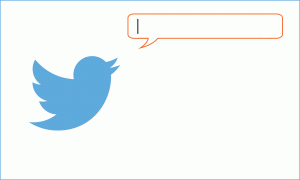Jason Leopold offers this advice to reporters: File a few FOIA requests each month to get a pipeline of information in an “era of secrecy.”
Leopold, an investigative reporter covering national security intelligence and Guantanamo (GITMO) for VICE News, wasn’t always such a crusader for public documents. He recalls a few times in the “Bush years” when he filed a Freedom of Information Act request about the CIA’s interrogation program, was rejected and simply “let it go.”
That’s over.
After he broke a big story two or three years ago borne out of a FOIA document and watched the splashy media attention and government reaction, he transformed into a FOIA-filing machine.
That particular story used material from a PowerPoint to detail how U.S. Air Force nuclear missile officers were trained to cite Jesus Christ and a former Nazi father as rationale in ethical decisions and issues.
“After I published, the Air Force suspended its ethics training for the first time in 20 years; Congress got involved,” Leopold, 45, told American Journalism Review. “From that point forward, I wanted to continue reporting stories like that. When I saw the power of those documents — during a time of WikiLeaks, etc. — I wanted to make sure that I was able to continue [that kind of reporting].”
Leopold said his most challenging FOIA battle has involved the U.S. Southern Command — the military agency that provides oversight of Guantanamo. (U.S. Southern Command did not respond to AJR’s request for comment.) He was seeking documents pertaining to the death of detainee Adnan Latif in 2012. He obtained the 79-page SOUTHCOM report into Latif’s death, which he called “one of the most important papers I’ve ever received.”
The report revealed, among other things, that Guantanamo guards contributed to Latif’s death by failing to follow “numerous protocols.” His reporting also documented how, while alive, Latif was “plied with pills whenever the guards deemed him to unruly, which appeared to be often.”
Below is an edited interview with Leopold, who was once called an “FOIA terrorist” by a government agency that he has peppered with public records requests over the years:
American Journalism Review: What did you learn about filing public records requests as a result of the SOUTHCOM experience?
Jason Leopold: I learned that filing FOIAs can be tedious but the payoff can also be huge. In my experience, I realized that government agencies, while promoting how transparent they are, are unwilling to give up records that rightfully belong to the public without a fight.
AJR: How did you become such a prolific FOIA filer?
Leopold: That same year [as the nuclear missile officer story on ethical decision-making], I filed the first request for Occupy Wall Street [documents] with all the various government agencies. I ended up with thousands of pages of documents, which set me on the path of using public records as a primary means of doing investigative reporting. … This was also a time when sources were really skittish about talking to me; they worried about being prosecuted. I wanted to steer away from using anonymous sources — how can anyone verify that? But it was really difficult to avoid using them and became too much of a problem. The only way to avoid anonymous sources, in lieu of getting people to leak me info, was to use FOIA.
After that, I began building a pipeline. I would file enough requests that the years could go by and results would trickle in regularly. I probably have hundreds of requests out at any given time. I try to file at least one a day. I filed a request asking what legal authority the Obama administration has to go into Iraq and Syria. I said I wanted all legal guidance that was provided to the president. I have a template now for requests, so I was able to put that together somewhat quickly. In the past, that would take a lot of time. It’s a lot of work. FOIA has its own shortcomings; it’s difficult and tedious. But I have to figure out how to continue to do my job without speaking to anonymous sources.
AJR: What’s the status of investigative reporting right now in the U.S.? National vs. local/state?
Leopold: There’s definitely a need for FOIA and investigative reporting right now. We live in an era of secrecy that exists at every level. These officials don’t want to give up or provide information because it may be embarrassing, or reveal wrongdoing. They’re not following the laws that say they have to disclose info.
I think other news organizations recognize FOIA as powerful but don’t take advantage of it enough. … One complaint reporters have is that it takes so long to obtain information with FOIA that it’s no longer relevant. That’s true, but it may be up to the reporter to sit down and think about how to make it newsworthy if you get a record a year later.
AJR: What advice do you have for other reporters, especially those new to dealing with public records, in filing FOIAs?
Leopold: A lot of it will come from just reading news. Try to spot an anonymous source; a new program that so-and-so is launching (are there any documents? what discussions took place behind the scenes?).
I explain to everyone that government agencies don’t have to give you anything, but you can ask for anything. You can ask for emails. The last 25 emails of the mayor. Or maybe there’s some local controversy that took place in May … ask for all of mayor X’s emails in the month of May.
It’s always important to know as much as you can about the information you’re asking for. The key to getting documents is writing FOIA requests well. Certain words are off-limits; agencies would arguably not have to process a request if you use a certain word, like “relating” — they’ll claim it’s too vague. Read the state and local FOIA laws.
AJR: You founded ThePublicRecord in California, a nonprofit news and commentary site dedicated to “serving the public interest” through “intrepid new journalism.” How are traditional or legacy media faring right now at this kind of investigative reporting? And how are “alternative” or new media start-ups doing, in comparison?
Leopold: I think other news organizations are recognizing that nontraditional reporters are not only able to compete, but also able to scoop them. The response to WikiLeaks and the Snowden disclosures have helped to change [reporters’ reluctance to file FOIAs]. … The fact of the matter is that every reporter should know how … everyone should file a few requests a month. We are in a very unique position to obtain them for very little or no money.
*The headline of this article has been updated to reflect that Leopold works for Vice News and the text was updated to reflect that the Air Force suspended its ethics training for the first time in 20 years.








